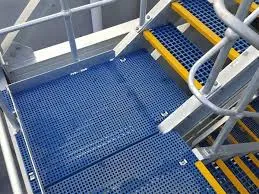High-Performance Fiberglass Demister Solutions
The Role of Fiberglass Demisters in Industrial Applications
In various industrial processes, especially in oil and gas, power generation, and chemical manufacturing, the need for efficient separation and filtration systems is crucial. Among these systems, fiberglass demisters play a vital role in ensuring operational efficiency and safety. But what are fiberglass demisters, and why are they so important?
Fiberglass demisters, also known as mist eliminators or mist separators, are designed to remove liquid droplets from gas or vapor streams. These devices are composed primarily of fiberglass, which provides a robust and corrosion-resistant material ideal for harsh environments. The fibrous structure of these demisters facilitates effective droplet coalescence, enabling the separation of liquid from gas with minimal pressure drop.
One of the main functions of a fiberglass demister is to enhance the efficiency of gas processing systems. When gas streams contain moisture or liquid droplets, they can lead to corrosion, fouling, or operational inefficiencies. By removing these droplets, demisters help maintain the integrity of downstream equipment such as compressors, reactors, and heat exchangers, ultimately saving significant maintenance costs and downtime.
The manufacturing process of fiberglass demisters involves weaving glass fibers into a dense mat. This arrangement creates a large surface area for droplet capture while allowing gas to pass through with minimal resistance. As vapor or gas passes through the demister, larger droplets collide with the fibers and coalesce into larger droplets, which then gravity drain back into the system. This process is highly efficient and can achieve droplet removal efficiencies of up to 99%, depending on the specific design and application.
fiberglass demister

The versatility of fiberglass demisters makes them suitable for various applications. In the oil and gas industry, for instance, they are often employed in gas processing units and separators to prevent liquid carryover into gas pipelines. In power plants, they can be used in cooling towers or steam systems to minimize water mist entrainment. Chemical manufacturing plants implement demisters in various processes to ensure product purity and equipment longevity.
Moreover, fiberglass demisters are lightweight compared to traditional metal demisters. This attribute makes them easier to handle and install, reducing labor costs and installation time. Furthermore, fiberglass’ inherent resistance to corrosion allows for a longer service life, even in aggressive chemical environments.
Environmental regulations increasingly compel industries to reduce their emissions and prevent contamination, putting additional pressure on companies to adopt efficient separation technologies. Fiberglass demisters not only help in meeting these regulatory requirements but also contribute to overall energy efficiency by optimizing process conditions.
In conclusion, fiberglass demisters are essential components in many industrial applications. Their ability to effectively remove liquid droplets from gas streams enhances productivity, reduces maintenance costs, and promotes a safer operational environment. As industries continue to face stringent regulations and seek to improve efficiency, the importance of technologies like fiberglass demisters will only grow. Investing in high-quality demisters can lead to significant long-term benefits for operators, ensuring that their processes remain efficient, safe, and environmentally responsible.
Latest news
-
Oblate Tanks: Space-Saving, Durable Liquid Storage SolutionsNewsAug.27,2025
-
High-Performance Piping System Solutions for Industry & Commercial UseNewsAug.26,2025
-
Precision Fittings: Durable & Reliable Industrial & Plumbing SolutionsNewsAug.25,2025
-
Practical Steps: Unlock Success with Our Proven GuidesNewsAug.24,2025
-
Transport Tanks: Safe, Durable & Efficient Liquid HaulingNewsAug.23,2025
-
High-Quality Piping Systems for Efficient Flow & DurabilityNewsAug.22,2025











